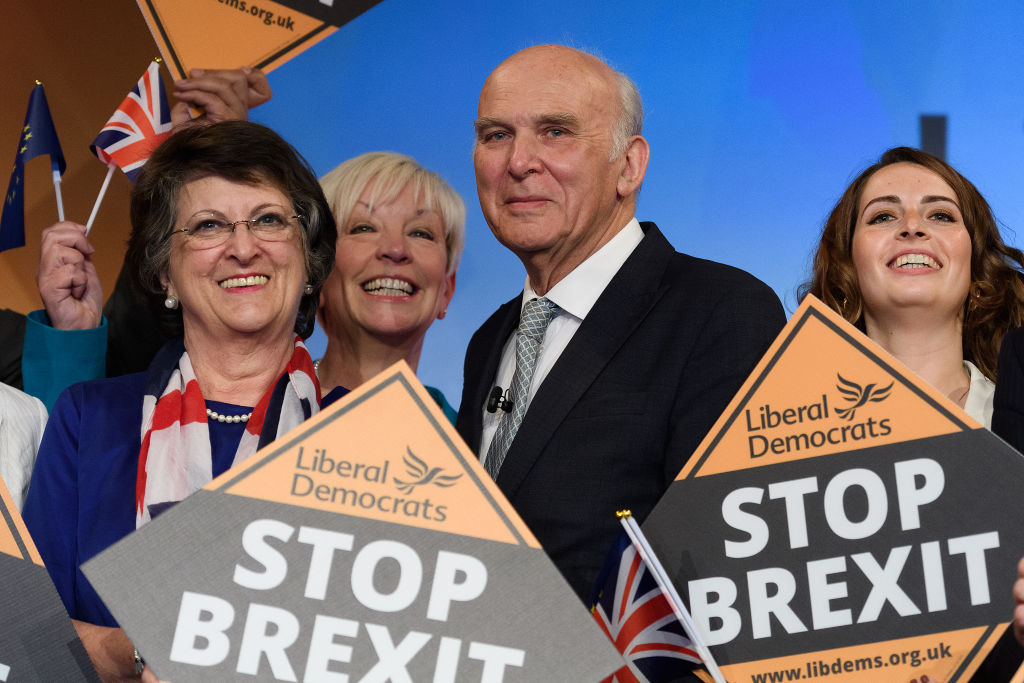Small issues – the construction of a hated roundabout or an outbreak of pot holes – can matter a lot at local elections. This year however the mood is different. Traumatised by Brexit, voters have been itching to vent their frustrations at the ballot box one way or another. With the two main parties in the stocks, today’s polls could be a golden opportunity for the most established small party, the Lib Dems.
It would certainly be a long time coming. The party once known as the “yellow peril” lost 750 seats in 2011, then a further 400 in 2015. Broken promises over tuition fees, combined with a general distaste among its core voters at their coalition with the Conservatives rather than Labour, their more natural bedfellows, has led to a perception of the Lib Dems as wolves in sheeps’ clothing; the contrarian’s party which promised a cosy third way, but sold its soul at the first taste of real power. Tim Farron’s gay sex comments, followed by Vince Cable’s low-wattage leadership have hampered any semblance of recovery.
Even the centrist hybrid Change UK has avoided cooperating with the Lib Dems because of the perceived toxicity of their brand. This has riled many loyal Lib Dem voters, who see Chuka’s new outfit as parking itself on their lawn with the intention of killing them off for good. The new party were hoping the eleven Lib Dem MPs would fold and join them, but this hope could well have backfired.
Change UK’s shambolic European election campaign, beset by a disastrous name change and a bizarre logo (which looks like blocks of redacted text on a legal document) could have already caused irreparable damage. This might even mean that Chuka and his chums end up joining the Lib Dems, rather than the other way round.
With Cable soon standing down and fresh, popular figures like Layla Moran talked of as possible successors, there is a chance to start anew. The most recent Survation poll for the EU elections shows support creeping up (albeit by just one per cent) but local elections are much harder to predict. The elements for a Lib Dem renaissance are in play, and the local elections could provide the first signs of new life. Labour’s tactical ambiguity over Brexit has so far served to smother attempts by the Lib Dems to become the official party of remain, but with mounting pressure on Jeremy Corbyn to commit to a new referendum, anti-Brexit voters may be feeling like he needs an extra nudge.
This is where the council elections can provide an insight into the national mood. Local issues matter, but the wish of voters to send a message to Westminster can also play a major role. Unlike Labour or Change UK (though the ChUKs will not be standing candidates in these locals) the Lib Dems have been straight-up from the start about their Brexit intentions. This could be the year which sees their consistency pay off. The Greens – who with the help of the recent climate protests could have posed a major threat to the Lib Dems – are only contesting 30 per cent of seats.
On the other side of the Brexit divide, supporters of leave are in something of a pickle. Many who have been loyal Tory voters are eager to punish Theresa May for extending Article 50, but with Ukip’s lurch to the right, it is far from clear where the bulk of these votes will go. Nigel Farage’s Brexit Party won’t be contesting, and with Labour still vacillating on the issue, Brexiteers might hold their nose and vote Tory after all. But the more likely outcome is they stay home, or spoil their ballots en masse.
The churning of the party system as it catches up with the country’s new tribal loyalties could well spit out the Lib Dems unchanged, untarnished and significantly stronger. Much of this depends on which path Labour chooses. Corbyn and the Labour leadership show few signs of giving in to the remain wing of the Labour party, presumably rattled by the sheer momentum of the Brexit Party. If Labour commit to this path, the Lib Dems could finally emerge as the only viable pro-remain option for voters.
The long-term question is who will the two main parties be more afraid of, the Brexit Party or the Lib Dems? Both effectively function as pressure groups, existing as a force to push and pull the two sides of the two party system into adopting their policies. Ukip forced David Cameron to hold the EU referendum. And if the Lib Dems start taking pro-remain votes from Labour, they could persuade a future Labour government to do the same and opt for a second vote.






Comments